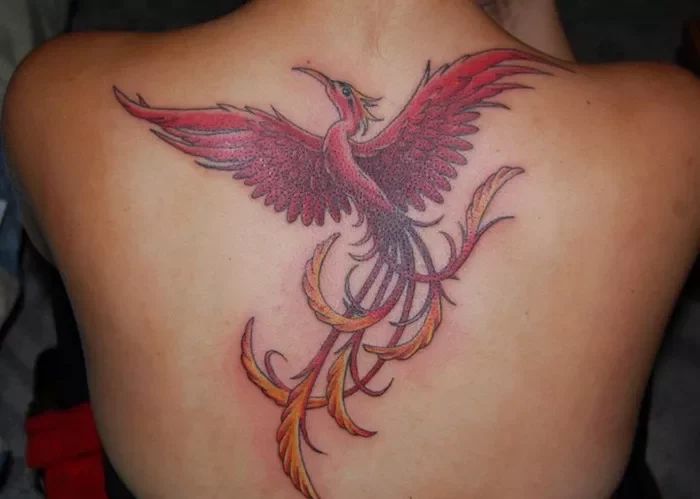In recent years, tattoos have become more than just body art; they serve as a canvas for personal expression, storytelling, and identity. However, beneath the surface of intricate designs and vibrant colors lies a fascinating correlation between tattoos and mental health, particularly anxiety. While tattoos are often seen as symbols of strength and empowerment, they can also provide insights into an individual’s struggles with anxiety. This article delves into the nuanced connection between tattoos and anxiety, exploring how the two intersect and what they can reveal about one’s psychological state.
Tattoos as Expressions of Inner Turmoil
For many individuals, getting a tattoo is a deeply personal decision that reflects their innermost thoughts, emotions, and experiences. It serves as a form of self-expression and a means to externalize internal struggles. In the case of anxiety, tattoos can often symbolize a desire to reclaim control over one’s body and emotions.
The process of getting a tattoo can be both physically and emotionally cathartic. For some individuals living with anxiety, the act of getting inked provides a temporary escape from overwhelming thoughts and feelings. It allows them to focus on the present moment, experiencing a sense of relief from their inner turmoil.
Moreover, the permanence of tattoos can serve as a reminder of resilience and strength in the face of adversity. For individuals battling anxiety, tattoos can represent a tangible symbol of survival—a testament to their ability to endure and overcome challenges.
The Symbolism Behind Anxiety Tattoos
While the imagery and symbolism of tattoos vary widely from person to person, there are certain motifs that are commonly associated with anxiety. These symbols often reflect the individual’s inner struggles and coping mechanisms, providing a glimpse into their psyche.
One prevalent motif is that of the labyrinth or maze, which symbolizes the complex and tangled nature of anxiety. For many individuals, anxiety can feel like navigating a labyrinthine maze, with countless twists and turns leading to dead ends and uncertainty. By incorporating this imagery into their tattoos, individuals with anxiety may seek to convey the complexity of their internal world.
Another common symbol is that of the phoenix, a mythical bird that rises from the ashes of its own destruction. For individuals grappling with anxiety, the phoenix represents resilience, transformation, and the ability to emerge stronger from adversity. By depicting the phoenix in their tattoos, individuals with anxiety may be expressing their hope for renewal and growth despite their struggles.
Tattoos as Coping Mechanisms
In addition to serving as symbols of inner turmoil and resilience, tattoos can also function as coping mechanisms for individuals living with anxiety. The process of getting a tattoo can be a form of self-soothing, providing a temporary distraction from anxious thoughts and emotions.
Furthermore, tattoos can serve as a form of self-care for individuals struggling with anxiety. The act of choosing a design, scheduling an appointment, and going through the tattooing process can be empowering, allowing individuals to take ownership of their bodies and their experiences.
Moreover, tattoos can serve as a source of comfort and reassurance during times of distress. For some individuals, simply looking at their tattoos can evoke a sense of calm and stability, serving as a tangible reminder of their strength and resilience.
The Stigma Surrounding Anxiety Tattoos
Despite the growing acceptance and popularity of tattoos in mainstream culture, there remains a stigma surrounding tattoos that depict mental health issues, including anxiety. Some individuals may view anxiety tattoos as attention-seeking or inappropriate, failing to recognize the significance of these tattoos as forms of self-expression and coping mechanisms.
This stigma can prevent individuals from openly discussing their anxiety tattoos or seeking support from others. It can also lead to feelings of shame and self-doubt, further exacerbating the individual’s anxiety.
As a society, it is crucial to challenge these stigmas and foster greater understanding and acceptance of tattoos that depict mental health issues. By acknowledging the significance of these tattoos as expressions of personal struggle and resilience, we can create a more inclusive and supportive environment for individuals living with anxiety.
Conclusion
In conclusion, tattoos can offer valuable insights into an individual’s experience with anxiety, serving as symbols of inner turmoil, resilience, and coping mechanisms. By understanding the nuanced relationship between tattoos and anxiety, we can gain a deeper appreciation for the ways in which individuals express and navigate their mental health struggles.
It is essential to recognize the significance of anxiety tattoos as forms of self-expression and empowerment, rather than dismissing them as mere decorations. By fostering greater empathy and understanding, we can create a more supportive and inclusive environment for individuals living with anxiety, allowing them to embrace their tattoos as symbols of strength and resilience in the face of adversity.

